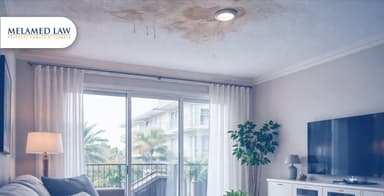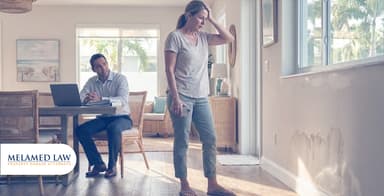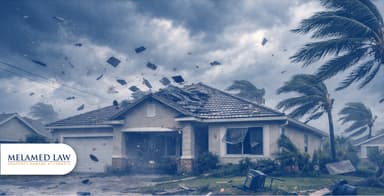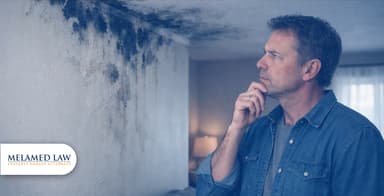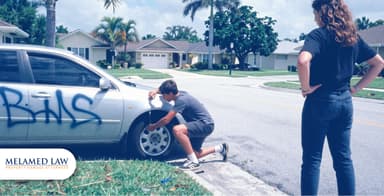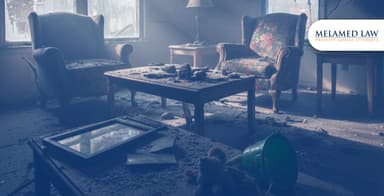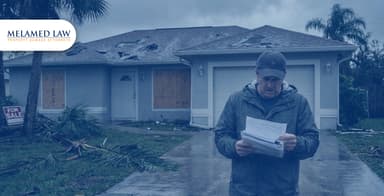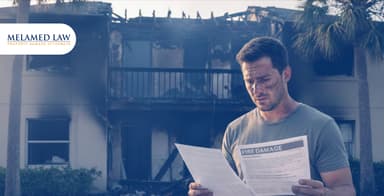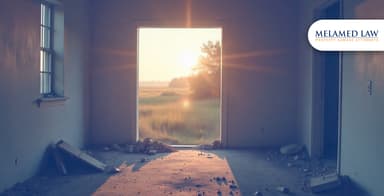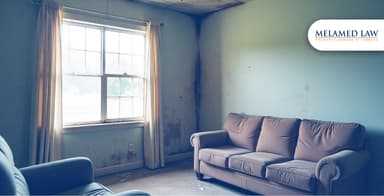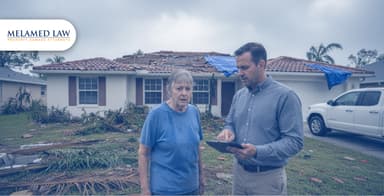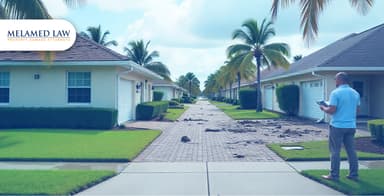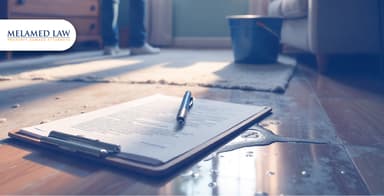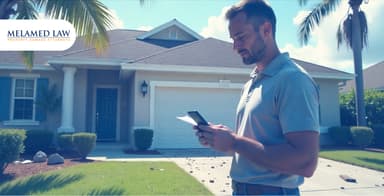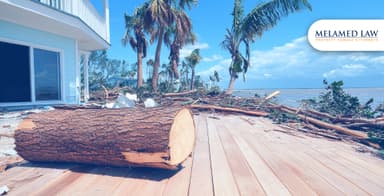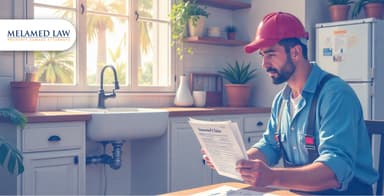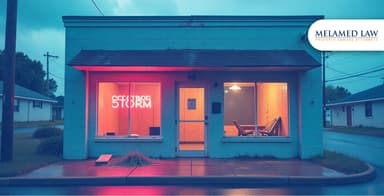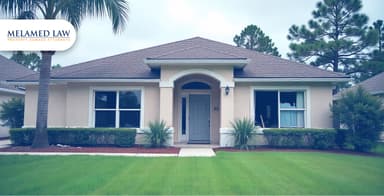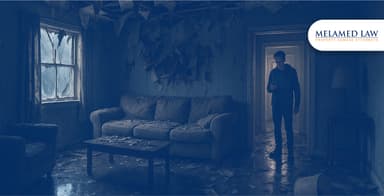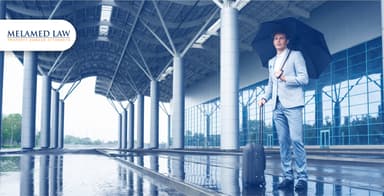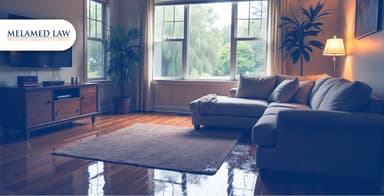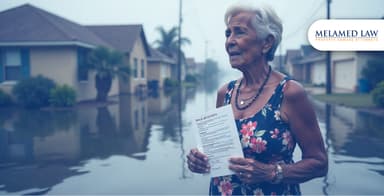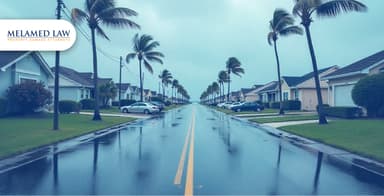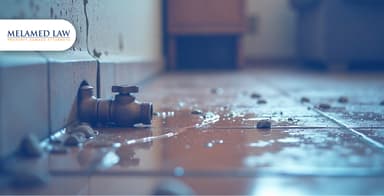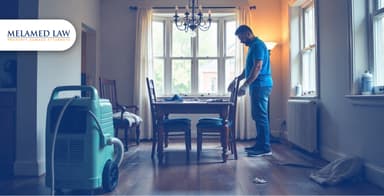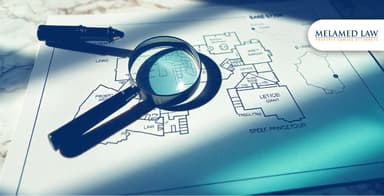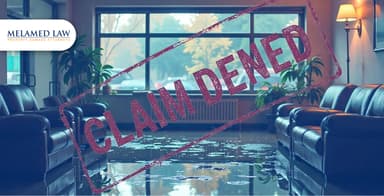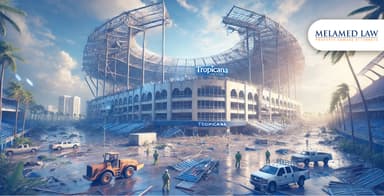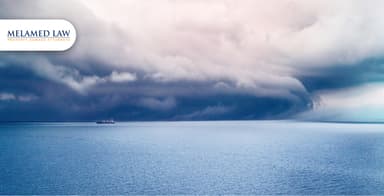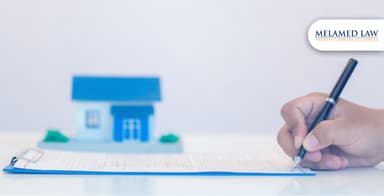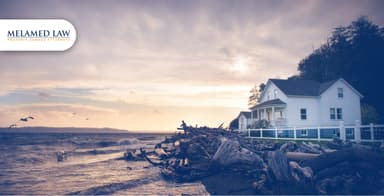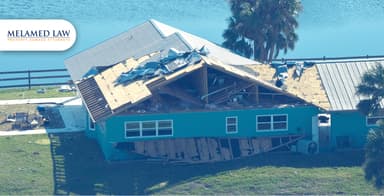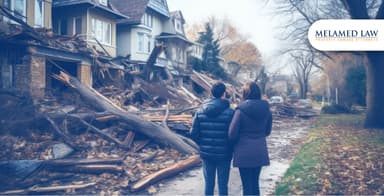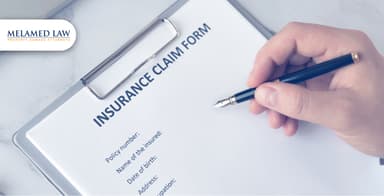
Does Homeowners Insurance Cover Plumbing Leaks in Florida?
When the unexpected happens, we help individuals and businesses collect the money they deserve for their insurance claims.
Melamed Blogs
March 8, 2025
Does Homeowners Insurance Cover Plumbing Leaks in Florida?
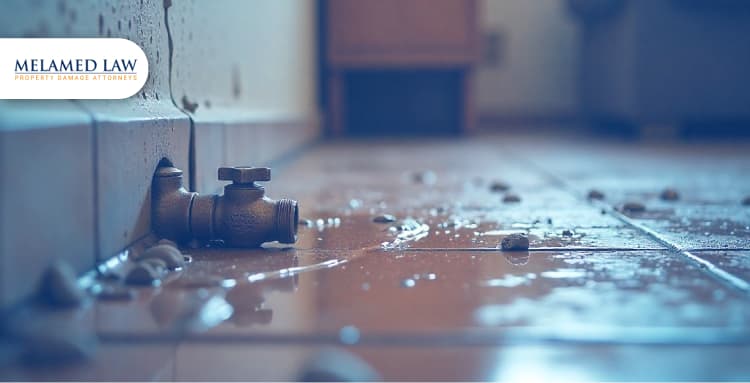
Let’s talk about something as ordinary as water, something we take for granted until it betrays us. A quiet drip in the shadows, a pipe under strain—small things that can, without warning, unravel the foundation of your home and peace of mind. In Florida, where unpredictability is woven into the fabric of life, the question isn’t just whether plumbing leaks will happen, but whether you’re prepared when they do.
And as with most things, the answer lies not in the leak itself, but in the fine print of your homeowners insurance policy. Let’s explore that gray area, where what’s covered and what isn’t can make all the difference.
What Types of Plumbing Leaks Are Covered?
Understanding what plumbing leaks are covered under your homeowners insurance can save you stress and unexpected costs. Here's a closer look at the types of leaks your policy may handle:
1. Sudden and Accidental Leaks:
Let's talk about what plumbing leaks your homeowner's insurance typically covers. Generally, policies cover "sudden and accidental" water damage. This means the damage must be unexpected and not due to neglect.
If a pipe bursts out of nowhere or a plumbing fixture unexpectedly fails, your homeowners insurance likely covers the damage. For instance, if a washing machine hose snaps and floods your home, your policy can help cover the repair costs. The key factor is that the damage must be sudden and accidental.
Sometimes, leaks happen because of external factors. For example, a tree branch or heavy roof debris could break a pipe. Similarly, severe storms or fires can damage plumbing systems. In these cases, insurance typically covers repairs, including any water damage. This also applies to pipes that freeze and burst during a cold spell—provided you kept the heat on and made efforts to protect your pipes from freezing.
Household appliances like dishwashers, water heaters, and washing machines can also cause sudden leaks. If an appliance unexpectedly malfunctions and floods your home, your insurance policy should help pay for repairs.
If a sudden roof leak causes plumbing damage that might also be covered. For example, if a storm creates a hole in your roof, leading to a plumbing issue, your insurance may assist with repairs.
2. Resulting Damage:
In Florida, homeowners insurance policies typically cover the resulting damage from plumbing issues, even if the plumbing system itself isn't covered. This means that if a pipe bursts and causes water damage to your floors, walls, or ceilings, the damage to these areas is generally included in the coverage.
Taking immediate action when a leak occurs is critical. Delaying repairs can weaken your claim. Your Insurance company assesses how and why the damage happened, so ensuring the event was unexpected and unavoidable is crucial for coverage. Additionally, take a few pictures and save all receipts if you need to make any urgent repairs before the adjuster comes.
When Are Plumbing Leaks Not Covered?
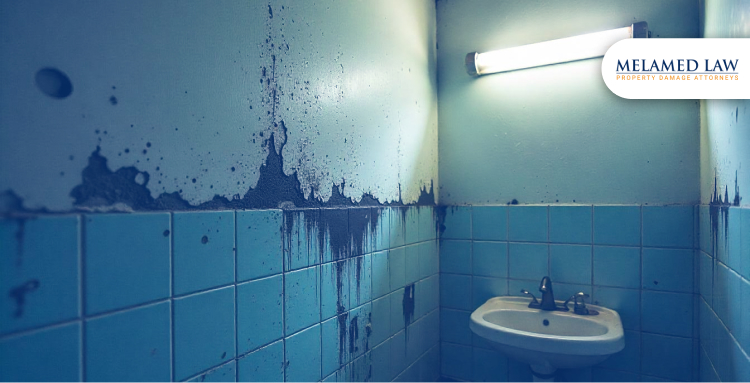
Not all plumbing leaks are covered by homeowners insurance. Insurance policies usually exclude damage that occurs gradually, results from neglect, or stems from external causes like flooding.
1. Gradual Damage:
Insurance doesn’t cover damage caused by slow leaks or long-term issues. These are considered maintenance problems that fall under your responsibility as a homeowner.
For instance, if a pipe under your sink has been dripping for months and causes mold or structural damage, your policy won’t help. Similarly, if moisture or wetness from neglected plumbing leads to rot or mildew, you’ll need to cover those expenses out of pocket. Insurers expect homeowners to address leaks promptly. Ignoring them can leave you responsible for costly repairs.
2. Negligence:
If damage happens because of poor upkeep, your insurer may deny the claim. Examples include failing to repair rusting pipes or ignoring small cracks.
Letting your pipes freeze during winter by leaving your home unheated is another common exclusion. To maintain coverage, you must take steps to prevent freezing, such as insulating pipes and keeping the heat on. Insurers view these precautions as your responsibility. Over time, wear and tear on plumbing systems is inevitable. Insurance won’t pay for repairs due to aging pipes, clogs, or corrosion. Routine inspections and timely fixes can save you from facing hefty repair bills alone.
Some policies may have specific exclusions. For example, leaks from swimming pools are often not covered as they are deemed preventable.
3. Flood Damage:
Standard homeowner's insurance does not cover damage caused by external flooding. This means flooding damage from natural events like heavy rain or overflowing rivers. You need separate flood insurance for this.
4. Additional Coverage Options:
Water Backup & Sump Pump Failure Coverage: This coverage protects against damage caused by sewer or drain backups. Standard policies usually exclude this, so it's a valuable addition.
Home insurance policies don’t often cover sump pump failures unless you acquire an additional rider or endorsement. If this coverage isn't currently included in your insurance, think about getting it. Because fixing these backups can be quite costly.
Flood Insurance: This insurance is essential for homes in flood-prone areas, as it covers water damage from natural disasters. Standard homeowners insurance policy won’t cover this type of damage. You’ll require separate flood insurance coverage.
Flood insurance typically comes in two parts:
Dwelling Coverage: Covers repairs to your home’s structure, including plumbing and electrical systems damaged by floodwaters.
Contents Coverage: Protects personal belongings like furniture, clothing, and appliances.
Flood insurance policies offered by the National Flood Insurance Program (NFIP) cap coverage for dwellings at $250,000 and personal belongings at $100,000. Private insurers may offer higher limits if needed. However, unlike standard homeowners insurance, flood insurance doesn’t include living expenses.
What to Do if You Have a Leak

Dealing with a plumbing leak can be stressful. But if you act quickly and methodically, you can minimize damage and ensure a smoother insurance claim process. Here’s what you need to do:
1. Act Quickly:
The first thing to do is stop the water flow to prevent further damage. Locate the main water shutoff valve in your home and turn it off immediately. If the leak is coming from an appliance, such as a washing machine or dishwasher, you can often stop the water supply to that specific device. (Also read: What is the best way to dry out your house if there is water damage?)
After stopping the water, assess the situation. If the leak is severe, call a plumber to fix the issue. Quick action can prevent minor leaks from escalating into major problems. Also, it can save you from more extensive repairs and insurance headaches.
2. Document the Damage:
Once the leak is under control, document everything. Take clear photos and videos of:
The source of the leak (e.g., a burst pipe or faulty appliance).
All affected areas, such as floors, walls, ceilings, and furniture.
Any visible signs of water damage, including stains, warping, or mold growth.
While your instinct might be to clean up right away, try to document the damage before you start cleaning. This provides a clear picture of the initial damage for your insurer. However, if standing water risks further damage or mold growth, take steps to remove it. But make sure to document the area before and after.
If possible, keep damaged items for the insurance adjuster to inspect. If you have to dispose of anything, take photos and videos of it first. This evidence will help substantiate your insurance claim. Be thorough—missing details could delay or weaken your claim.
More for you: What are the most common reasons for insurance claim rejections?
3. Contact Your Insurer:
Once you've documented the damage, contact your insurance provider as soon as possible. Explain the situation clearly and provide all the evidence you’ve gathered. Be prepared to answer questions about:
When and how the leak occurred.
The steps you took to address the issue.
The extent of the damage.
Your insurer will guide you on the next steps, which may include scheduling an inspection or providing a list of approved contractors. Be honest and detailed in your communication—insurers often scrutinize claims to ensure they align with policy terms.
Consult with Melamed Law PLLC
A plumbing leak isn't just a minor setback—it's a disruption that throws your whole life off balance. Water begins to invade, ruining the things you've worked so hard to maintain, and before you know it, you're drowning with repairs and uncertainties. And as you try to figure it out, your homeowner's insurance might not have the solution you're hoping for.
At Melamed Law, we understand. We get the weight of it, that sense of helplessness when things go wrong. But this is your story, not just a case. Let us help you make sense of it. We’ll sift through the fine print of your insurance policy, track down the source of the damage, and make sure you're not left fighting an unfair battle alone. We’ll gather the proof, challenge any denials, and stay by your side, fighting for what’s rightfully yours.
Recent Cases
